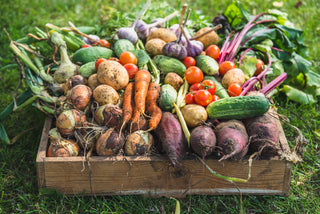"Blind" seedlings refer to plants that fail to develop or grow properly due to various factors, such as unfavorable environmental conditions, pests, or diseases. Some vegetable seedlings may be more prone to becoming blind under certain circumstances. Here are a few examples:
-
Tomatoes: Tomato seedlings can become blind due to transplant shock, overwatering, nutrient deficiencies, or diseases such as damping-off, which is caused by a fungal infection.
-
Peppers: Like tomatoes, pepper seedlings are susceptible to transplant shock, overwatering, and nutrient deficiencies. They may also suffer from aphid infestations or viral diseases that can stunt their growth.
-
Cucumbers: Cucumber seedlings can become blind if they're exposed to overly wet or cold conditions, resulting in root rot or other fungal diseases. Pests like aphids, spider mites, and whiteflies can also cause damage to the seedlings.
-
Cabbage: Cabbage seedlings can be affected by damping-off, clubroot (a soil-borne disease caused by the Plasmodiophora brassicae pathogen), or nutrient deficiencies, all of which can stunt their growth.
-
Lettuce: Lettuce seedlings may become blind due to damping-off, overwatering, or inadequate light. Pests like aphids, slugs, and snails can also cause damage to the seedlings.
To minimise the risk of blind seedlings, ensure that you provide the appropriate growing conditions for each vegetable variety, including proper temperature, humidity, light, water, and nutrients. Monitor your seedlings regularly for any signs of pests or diseases, and treat them promptly to prevent further damage.



